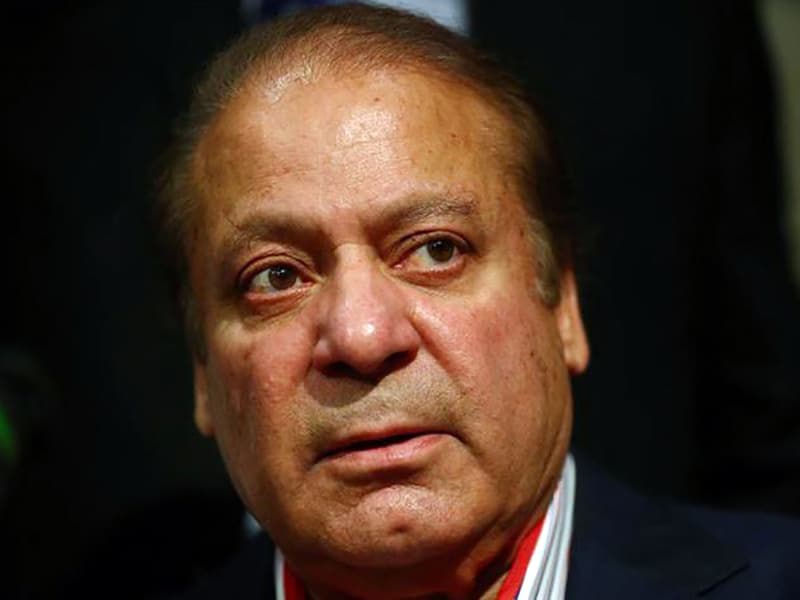ISLAMABAD: The family of former Pakistani prime minister Nawaz Sharif are trying to get a travel ban against him lifted so that he can go abroad for medical treatment, one of his close aides told AFP on Friday.
Sharif, Pakistan’s longest-serving premier, was ousted from his third term in office in 2017 and later imprisoned on corruption charges.
But his health has deteriorated in prison. Last month, he suffered a minor heart attack, his party said, adding that he is suffering from an autoimmune blood disorder.
Sharif also suffers from high blood pressure and his kidney functions are deteriorating, according to aides.
His doctor has claimed via Twitter that Sharif is “fighting for his life”.
Sharif has been bailed for health reasons and remains at a hospital in the eastern city of Lahore, but a ban remains in place forbidding him from travelling abroad.
“The family of the former prime minister on Thursday formally approached the interior ministry asking the government to allow Sharif to travel abroad for medical treatment,” a Sharif aide told AFP on condition of anonymity.
Interior ministry officials did not immediately respond to requests for comment. A senior government official told AFP the issue was being referred to the Cabinet.
The government is widely expected to grant the request, and a source in Sharif’s party, the Pakistan Muslim League-Nawaz (PML-N), told AFP it is likely he will fly to London next week.
Sharif’s daughter Maryam Nawaz, seen by many as his political heir, told reporters in Lahore that “since the matter concerns my father’s life, he should be flown wherever treatment of his disease is possible”.
Meanwhile, Sharif’s personal physician Adnan Khan tweeted Friday that the former premier was “critically unwell”.
“The unexplained cause & uncertain diagnosis complicates the overall clinical scenario requiring advanced investigations & specialised care”, he added.
Sharif, known as the “Lion of Punjab”, is a political survivor who has repeatedly roared back to the country’s top office, underscoring the unpredictable nature of Pakistani politics.
A hugely wealthy steel tycoon from Punjab, Pakistan’s wealthiest province, the 69-year-old was considered strong on the economy and infrastructure, but inherited sagging finances and a stifling energy crisis when he was elected for the third time in 2013.
He earned a reputation for combativeness during his two previous terms as prime minister, from 1990 to 1993 — when he was sacked, also on corruption charges — and from 1997 to 1999, when he was deposed by the powerful military.
Sharif blamed the security establishment for again targeting him in 2017, when the Supreme Court disqualified him from politics for life over graft allegations, which he denies.
He later received a seven-year jail sentence.
Cricketer-turned-politician Imran Khan, who defeated the PML-N in last year’s general election, has since launched a high-profile and controversial anti-corruption drive that has targeted several leaders of Sharif’s party.

